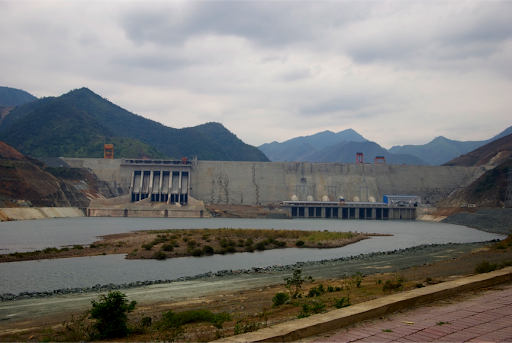REBECCA - Robust rivEr Basin planning under Extreme Climate events and fast socio-economic ChAnges
Dates: 2021-2024
Funding: SNSF Southeast Asia - Europe Joint Funding Scheme
Contact: Prof. Paolo Burlando, Dr. Anna Costa
Climate change and socio-economic growth are projected to severely challenge river basin development worldwide, calling for robust planning solutions with respect to such uncertain and evolving conditions. This is particularly relevant in monsoonal Southeast Asia, where large water storage systems play a key role for securing water, energy, and food to a rapidly growing and changing society. These systems require robust and adaptive operations capable of coping with high intra-annual and inter-annual hydroclimatic variability and to increasing frequency of extreme events. They also have to face multi-sector changing demands across multiple time scales, from daily operation to strategic river basin development. In this context, the ambition of REBECCA is to develop a decision analytic framework for supporting the robust, strategic planning of river basins in monsoonal areas with respect to future changes in water availability (climate change) and demands (socio-economic and technological changes). The framework will integrate future climate scenarios, including a catalogue of extreme climate events, future water demand scenarios, and a high-resolution infrastructure-accounting hydrological model to build accurate projections of water availability that also include water management policies optimized by means of a strategic model, against which to assess sustainability and robustness of future river basin development plans. The focus will be on the Red River Basin, China-Vietnam, a large transboundary river basin, where conflicts among different water uses, including hydropower production, flood control and water supply, and negative impacts on long-term sustainability are expected to increase under the combined pressure of increasing water and energy demands, and climate change. Particularly, extreme weather events are expected to become more frequent and extreme.
The REBECCA consortium involves four technical universities from four different countries with geographically and culturally heterogenous settings but sharing similar serious global challenges with ongoing and projected changes in climate, society and technology: Karlsruhe Institute of Technology (KIT), Hanoi University of Natural Resources and Environment (HUNRE), ETH Zurich (ETH), and Politecnico di Milano (POLIMI).
Extreme weather events in future climate
This team will build a catalogue of extreme events (WP1) over the Red River basin in future climates that will serve as input to a stochastic weather generator (WP3). For this purpose, historical extreme events and their large-scale meteorological drivers will first be analyzed and categorized using meteorological station and reanalysis data. To estimate extreme events in future climates, simulations from regional climate models (RCMs) will be used. To remove systematic model errors, state-of-the-art bias correction methods will be applied to RCM data first. In order to quantify potential changes in extreme events in future climates, the bias-corrected RCM simulations will be used to find and analyze extreme events that are related to similar dynamic forcings as identified from the historical events. A particular focus is on changes in the dynamic types of extreme events and amplitude of drivers.
Principal Investigators: external pageProf. Dr. Andreas Finkcall_made
Postdoctoral Researcher: external pageDr. Roderick van der Lindencall_made
Water demand scenarios
The HUNRE team will develop future water demand scenarios (WP2) in the whole river basin accounting for the multiple sector contributing to this demand and diverse drivers that will shape demand patterns in the future. Emphasis will be on ongoing and projected shifts from a predominantly rural to urban economy and from agriculture to aquaculture. The coevolution of climate and demand will be also explored. Existing data and surveys will be integrated with global dataset and projections from Integrated Assessment Models.
In addition, this team will also be responsible for communication and dissemination of the project outputs (WP5).
Principal Investigator: Dr. Van Anh Truong
Hydrological scenarios
We will set up a distributed, physically explicit and infrastructure-accounting hydrological model (TopkapiETH) that simulates in time and space the response of the Red River basin to natural forcing and anthropic disturbances (WP3). This model will be forced by means of an advanced, space-time, high resolution stochastic weather generator (AWE-GEN-2d), the parameterization of which will account for extreme precipitation events on the basis of the catlogue created by KIT (WP1). The weather generator will be also used to produce high resolution climate scenarios downscaled to the basin scale, thus allowing the investigation of the natural and anthropic basin under future climate forcing.
The hydrological model will allow to analyze the detailed impact of robust planning options, produced by the collaboration between ETH and POLIMI (WP4) for water demand scenarios developed by HUNRE (WP2), on a selected set of indicators.
In addition, our team is responsible for project coordination and management (WP0).
Principal Investigators: Prof. Dr. Paolo Burlando
Postdoctoral Researcher: Dr. Anna Costa
Robust river basin planning
This team will develop, in collaboration with ETH, a decision analytic framework for supporting the model-based design of robust river basin planning options able to perform satisfactorily across the wide range of future extreme scenarios generated (WP4). The design of robust planning solutions will rely on state-of-the-art and new optimization methods. Building on recent robust decision-making studies and advanced scenario discovery techniques, it will also be identified under which specific combination of future conditions, co-varying both extreme climate and socio-techno-economic drivers, potentially robust planning solutions become vulnerable to failure, based on different levels of risk/regret.
Principal Investigators: external pageProf. Dr. Andrea Castelletticall_made
Postdoctoral Researcher: external pageProf. Dr. Matteo Giulianicall_made

